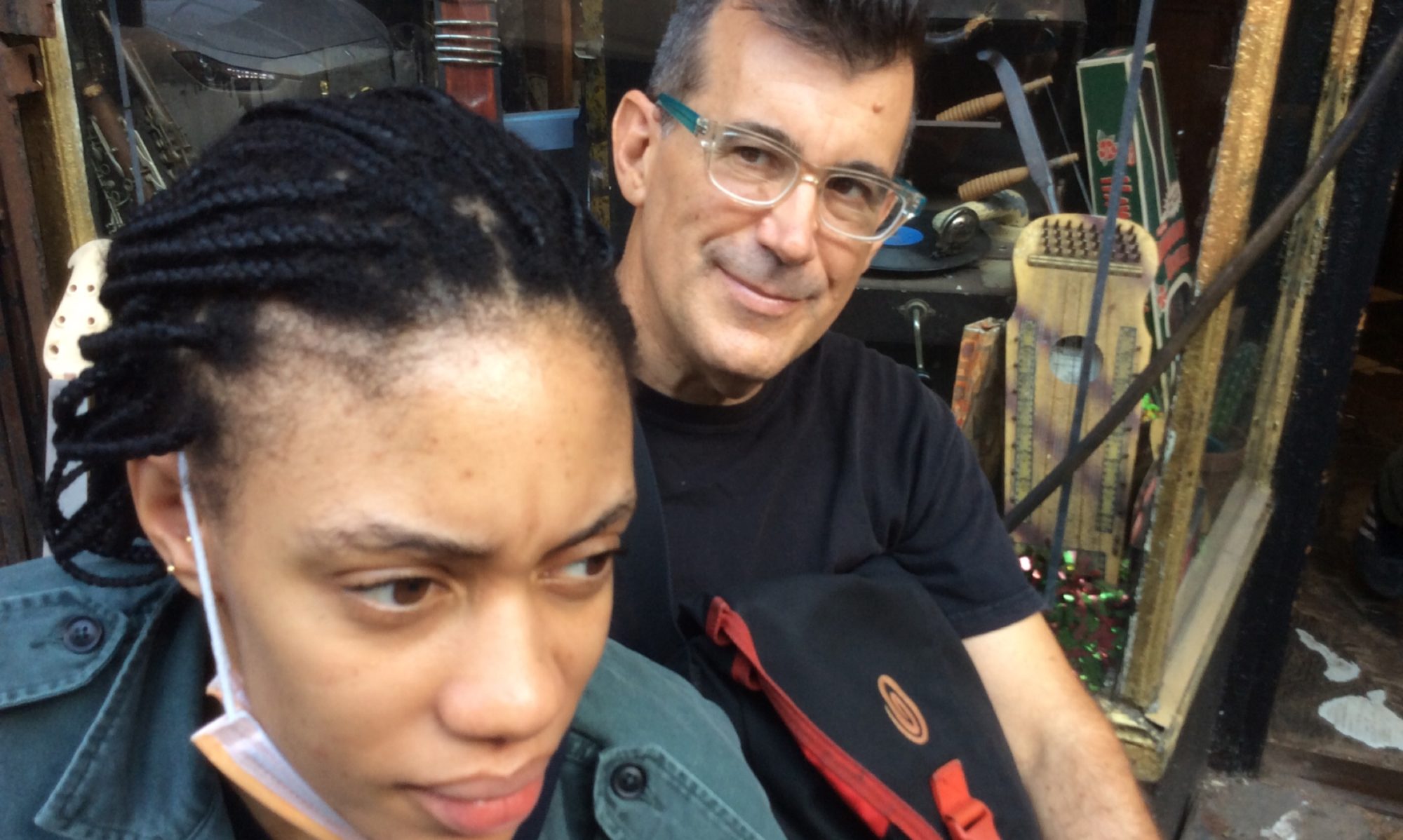.
what kind of traveler do you accompany?
i travel with people who are in the process of walking out of their lives, of leaving the person they’ve become.
their journey often involves changes in, among other things, their geography, their primary relationships, their profession and/or occupation, their way of life and way of living, their sense of identity, their long-held values and beliefs, and their ways of perceiving, understanding, and relating to themselves and the world around them.
these travelers are at a crossroads, a point of no return, a decisive moment.
they can no longer suppress the longings of their soul, and their soul can no longer endure the environments they are trying to endure in.
to continue living as they’re living – on the inside or the outside – is to die.
willing to incur the significant cost of leaving their old lives, they walk into the unknown, with only a desire to discover and create something new.
i have a natural affinity with travelers who have found the forms, functions, and frames of the existing world wanting. they seek a seam, a crack, a space in which to finally breathe, finally bloom.
i also travel with people who, having walked out of their lives, are dealing with the often chaotic and debilitating aftermath – all the while exploring, experimenting, and seeking ways to weave their worlds anew.
what does traveling with you involve?
spending time together, often in conversation, while sharing a cup of coffee or tea, a meal, or a walk.
what does travel companionship look and feel like?
it’s not a course, a class, a retreat, or a seminar. it is not a project or a set of goals or objectives. it’s not therapy or coaching. it’s not a set amount of time; x minutes a day, x days a week, for x weeks. it’s not one person always serving and the other always being served. it’s not transactional, it’s not specialized.
it is a communion of sorts. it exists in the context of a relationship between two people; incubated most often through conversations and time spent in each other’s company.
it is mutual, reciprocal; a shared journey, with shared vulnerabilities, shared exploration, shared experimentation, shared discovery, shared support.
it takes its own course, runs at its own pace. it’s as long or as short as it needs to be, as frequent or as sporadic as it needs to be, as intense or as casual as it needs to be.
it is contextual; determined by the situation, the circumstances, the possibilities, the needs of those involved, the exigencies of the moment. it is whatever it needs to be.
it is the traveler and the travel companion, meeting each other wherever they are at any given moment; bringing each other’s experiences, struggles, fears, concerns, quandaries, insights, perspectives, capacities, talents, curiosities, interests, passions, and desires to a shared space for mutual consideration.
it is accompaniment, in the best sense of the word.
is there an alternative characterization of travel companionship that’s a bit more concrete?
another way to consider travel companionship is in terms of experiences familiar to you.
you may have, at some point in your life, asked a friend or loved one to accompany you on a trip somewhere – perhaps to a dream destination, on a vacation, or alternatively, to the hospital for a difficult medical procedure. you most likely have also been on the receiving end of such invitations.
another example of travel companionship is being there for a friend or loved one during a difficult time in their life. perhaps they experienced the death of someone close to them, a long and protracted illness, a painful breakup or divorce, or a devastating job loss, and you were there to support, aid, comfort, or guide them, perhaps offering them a sense of hope and possibility. most importantly, you were there with them and for them, keeping them company, accompanying them.
you might have accompanied someone struggling with the birth of a child, someone trying to get sober for the first time, or someone newly arrived from another country having difficulty adjusting to their surroundings. conversely, during the more difficult passages of your life, you might have had some accompaniment of your own. your accompanists were, in a manner of speaking, travel companions for you on this journey we call life.
when you think about, people have been walking out of and reconstituting their lives for thousands of years, aided and supported by the accompaniment, the companionship, and the hospitality of a wide variety of others. so in some sense, travel companionship (as defined here) is one of the world’s oldest traditions.
i can’t quite put my finger on it, but some aspect of travel companionship is still confusing and unfamiliar. what am i struggling with?
in your day-to-day life, you have probably never met someone for whom, when asked the age-old question “what do you do for a living?”, has replied with, “i’m a travel companion.” you are unlikely to find it in official lists of occupations or as a field of study at the local college or university.
although it is truly one of the world’s oldest traditions, travel companionship as described above has not been thought of as a vocation or as one’s life work. it is something one did with or for a friend or loved one, but only if the need, opportunity, or circumstances arose.
it was not something one sought to do repeatedly, tried to master, wanted to specialize in or become known for. seeking out those who were walking out of their lives – wherever they might have been, locating them at their exact moment of need – would have been considered a fool’s errand, akin to searching for a needle in a haystack.
the primary element of travel companionship is, not surprisingly, presence and company; it is solidly grounded in the traveler and travel companion’s organic affinity for one another, and defined by qualities most commonly associated with friendship – among others, reciprocity, equal footing, shared vulnerability, shared interest in the substance of each other’s lives, ease and familiarity of engagement.
but travel companionship can also incorporate aspects of modern-day occupations, of paid service providers; professionals, specialists, and experts.
simply put, travel companionship as offered here is a non-traditional combination of both roles and both forms (friend/friendship and professional/service provider). it may take a bit of effort getting comfortable and familiar with.
when you accompany a traveler, do you have a goal or desired outcome?
first and foremost, to be good company. and if i can leave the traveler better off from whence they came, so much the better.
if i can somehow play a role, no matter how small or how brief, in their safe passage, their “getting to the other side” – to a better place, in the best and broadest sense of the word, however the traveler defines it – then i will be deeply satisfied.
and if, despite my best efforts, none of this obtains – always a distinct possibility with any journey, any traveler, and any travel companion – then that’s ok too.
what qualities in traveler and travel companion augur well for the journey together?
a sincere desire to stop living a life that is not one’s own, that one does not belong to;
a mutual desire to accompany each other – an interest in each other’s lives, a willingness to be vulnerable with each other, to support each other in our journey together; a shared concern for each other’s well-being;
a willingness to examine and, when appropriate, acknowledge our role in the self, the life, and the world we find ourselves in;
an enduring belief that a better way of life and a better way of living is possible – a life in which we feel alive, free, with a sense of belonging – truly at home in our selves and in the world.
will i receive a bill for “travel companionship services rendered?”
no, you won’t. when i accompany someone, there is no payment or money involved – ever.
why don’t you charge money for what you do?
much as if you invited someone to go on a trip with you to ______ (fill in a dream destination of your choice), you wouldn’t expect to have to pay them to come with you. and if you did pay them, it would probably change the nature of your interactions during the trip and the way you thought of (and related to) your travel companion.
my desire is to eliminate the distortions and interference involved in “fee for service” or “work for hire” arrangements because, in my experience, these arrangements limit the possibility and the potential of a fully realized, truly reciprocal relationship. and in so doing, they diminish the richness, the robustness, the efficacy, and the enjoyment of the travel companionship experience.
i know some people who may want to “travel” with you, though they don’t live in new york city. would that be possible?
i travel with people wherever they might be, whether in new york city, timbuktu, or places in-between. if getting to them involves climbing aboard a train, a bus, an airplane, or a boat, i am willing to do so.
my preference is to meet the traveler in person soon after our initial contact and, should we decide to travel together, as often as necessary, assuming getting together remains logistically and financially feasible.
when i’m not face-to-face, i’m most comfortable with exchanging voice memos; i’m not a big fan of phone calls or zoom and the like. this may change over time, and i try to be flexible with respect to most arrangements.
what are some of the challenges of a journey of this kind?
people walking out of their lives typically know what they’re leaving, but often have no notion of what they’re traveling towards. they don’t know where they’re going, what’s in store for them along the way, and whether they’ll be able to put a new life together, either as they go or upon arrival somewhere.
unweaving one’s old life while trying to explore and experiment with the possibilities of a new one can be a difficult process, often requiring a period of suspension, “unbecoming,” and loss as one discovers, reweaves, and becomes anew.
it’s the fun, the excitement, the promise, and the absolute terror of such a journey.
how can we support you in your journey?
i’d love to be in touch with travelers as described above, who are, paradoxically, everywhere and nowhere at the same time.
these travelers don’t walk around with signs on their foreheads that light up at the exact moment they’re walking out of or reconstituting their lives. i rely on people close to them – those who can sense when the moment arises, who know they might be open to traveling with another – to put us in touch.
should someone’s desire to walk out and reconstitute their life come to your attention, and you let them know there’s someone who is open to accompanying them on their journey, i would be most appreciative.
